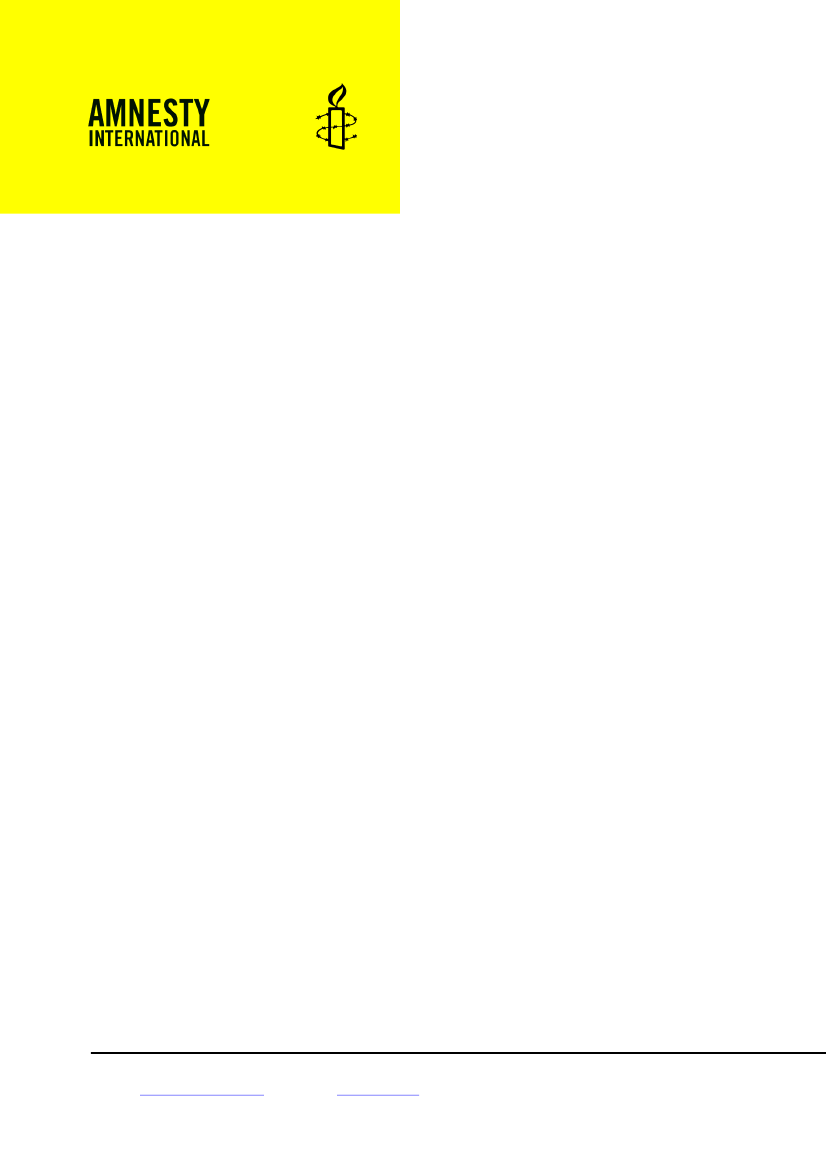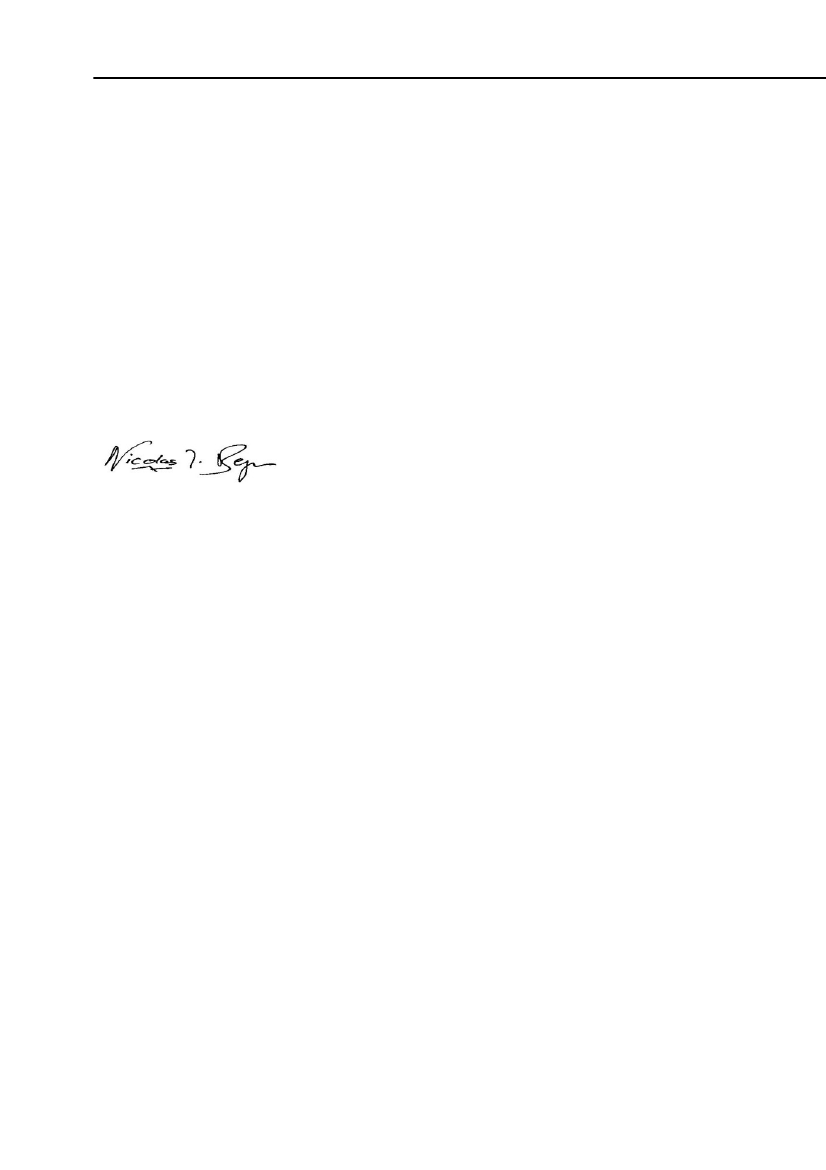Udenrigsudvalget 2011-12, Europaudvalget 2011-12
URU Alm.del Bilag 98, EUU Alm.del Bilag 228
Offentligt
European Institutions Office
Viviane RedingCommissioner for Justice Fundamental Rights and CitizenshipVice PresidentEuropean CommissionNeelie KroesCommissioner for Digital AgendaVice PresidentEuropean CommissionBrussels, 13 January 2012Our Ref: B1145Dear Commissioners Reding and Kroes,Hungary: Serious concerns over human rights impact of constitution and media lawsAmnesty International wishes to reiterate our concerns about the constitution and media laws, now inforce in Hungary, which we previously raised in our letters and meetings in March and April 2011. Wealso wish to address concerns about the European Commission’s weak response to serious fundamentalrights concerns.We note that in December 2011 Commissioner Reding expressed concerns over the retirement ofjudges and the independence of the Hungarian Parliamentary Commissioner for Data Protection.However, the European Commission has to date issued only a limited response to developments inHungary regarding the new constitution and media laws, both of which may have serious implicationsfor the exercise of human rights in Hungary. In the past year, the Commission took a wary approach tothese legislative developments, arguing that various human rights concerns raised by the media lawsand draft constitution fell outside the remit of EU law, and that it was too early to assess theirimplementation and effect under EU law. On 1 January 2012 the new constitution entered into force,while the media laws have now been in force for a year.We urge the Commission to review Hungary’s compliance with the EU Treaties, including the EUCharter for Fundamental Rights (Charter). Under the principle of the supremacy of EU law, where thereis a conflict between national constitutional laws and the provisions of the EU Treaties or the Charter,EU law must always prevail.We are aware of the steps the Commission has taken over the past month relating to economicgovernance and the judiciary in Hungary as affected by the new constitution. However, we remaindeeply concerned about the wider impact these laws might have on human rights, as protected underthe Charter and particularly Articles 2, 11 and 47, if they continue to be ignored.
rue de Trèves 35, B-1040 Brussels, Belgium Tel. +32-2-502.14.99 - Fax +32-2-502.56.86E-mail :[email protected]- Web site :www.amnesty.eu
Amnesty International European Institutions OfficeMedia lawsThe new media laws which were adopted in Hungary in September and December 2010, and amendedby the Parliament in March 2011,1introduced a single body which regulates all media sectors. Seriousconcerns were expressed immediately after the legislation was adopted, warning that concentratingpowers over all types of media into a single body may have an adverse affect on the exercise of freedomof expression. These concerns grew during 2011. They included criticism that the concentration ofpowers over the licensing of broadcast media in the hands of an administrative body which lacksindependence may lead to ‚arbitrary control over the tendering and licensing process‛.2In December2011, the National Media and Infocommunications Authority (Media Authority) decided not to grant alicence to an independent news radio station, Klubradio. This station is known for its public service-style programmes ‚including interactive phone-in debates, a unique forum where figures from a broadpolitical spectrum can participate.‛3Its frequency has been allocated to a new media company,founded only in 2011. The Media Authority’s decision made it impossible for the station to operate andthere is no possibility of an appeal under the current regulation. An NGO, Article 19, and other criticswarned that the decision appeared to be politically motivated and that it represented another indicationof the deterioration of media freedom and pluralism in Hungary since the adoption of medialegislation.4Owing to concerns over the Media Authority’s wide discretionary powers in conjunction with concernsover its independence, Article 19 and the Hungarian Civil Liberties Union (TASZ) have also challengedthe provision which allows the Authority to introduce a five-year ban on companies from participating infuture tender offers if sanctioned for a ‚gross breach‛ of broadcasting and licensing obligations. Thedetermination of a ‚gross breach‛ is left to the Media Council.5We urge the Commission to review the effects of the media legislation on the freedom of expression andinformation as laid out in Article 11 of the Charter.The constitutionWe are concerned that the constitution, in force as of 1 January this year, may, in practice, restrictinternationally protected human rights, including the right to be protected from discrimination and theright to an effective remedy.Article 21 of the Charter, that ‚[a]ny discrimination based on any ground such as sex, race, colour,ethnic or social origin, genetic features, language, religion or belief, political or any other opinion,membership of a national minority, property, birth, disability, age or sexual orientation shall beprohibited‛ [our emphasis].The new Hungarian constitution (theFundamental Law)led to the adoption of several ‘cardinal laws’which raise concerns over possible discriminatory impact. In December 2011, the Law on theProtection of Families was adopted. In paragraph 7 it establishes that families are formed by a‚relationship system establishing emotional and economic ties among natural persons that is based onthe marriage of aman and a woman,or linear blood relationship, or guardianship‛ [our emphasis]. Weare concerned that a restrictive understanding of the family as a unit between a man and woman mayhave a discriminatory effect by preventing courts from extending the institution to include same-sexcouples.
1 The Hungarian Press and Media Act adopted in September 2010; the Act on Media Services and Mass Media adopted in December 2010.2 ‚Hungarian Media Laws Q&A,‛ Article 19 and the Hungarian Civil Liberties Union (TASZ), August 2011, Available at: http://www.article19.org/data/files/medialibrary/2714/11-09-01-REPORT-hungary.pdf.3 Hungary: ARTICLE 19 condemnssince the adoMedia Authority refusal oflicense to Klubrádió. Available at:is another indication of the deterioration of media freedom and pluralism in Hungary
4 Id.5
Amnesty International European Institutions OfficeArticle 47 of the Charter guarantees ‚[e]veryone whose rights and freedoms guaranteed by the law ofthe Union are violated has the right to an effective remedy before.‛ In November 2011, Hungaryadopted a law on the Constitutional Court, which raises concerns over the accessibility of remedies inthe form of individual complaints to that court. Under the law, citizens are entitled to turn to theConstitutional Court only by way of a constitutional complaint which would require them to have legalrepresentation. "Moreover, the already ongoing procedures that have been launched through theprovisionactio populariswould be allegedly terminated, which will, according to the Hungarian HelsinkiCommittee, affect 1,600 pending cases of law review."We urge the Commission to carry out and deliver without delay a full and comprehensive human rights-based assessment of the new Hungarian constitution and its subsequent legislation, and the medialaws.We also urge the Commission to take all available measures, including a full assessment of thepossibility of infringement procedures as well as the possibility of using sanctions under Article 7 of theTreaty of the EU.
Yours sincerely,
Dr. Nicolas J. BegerDirector



